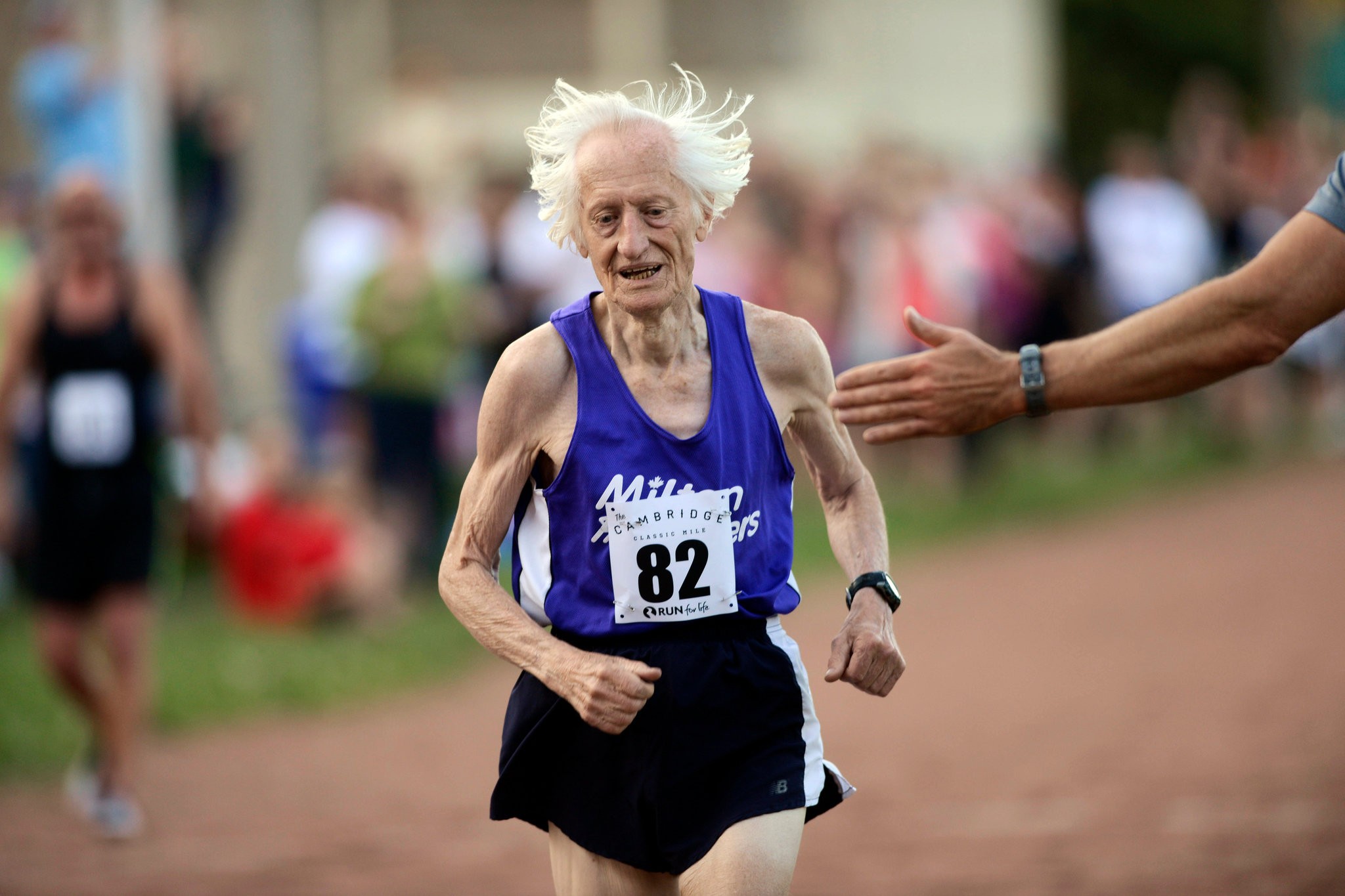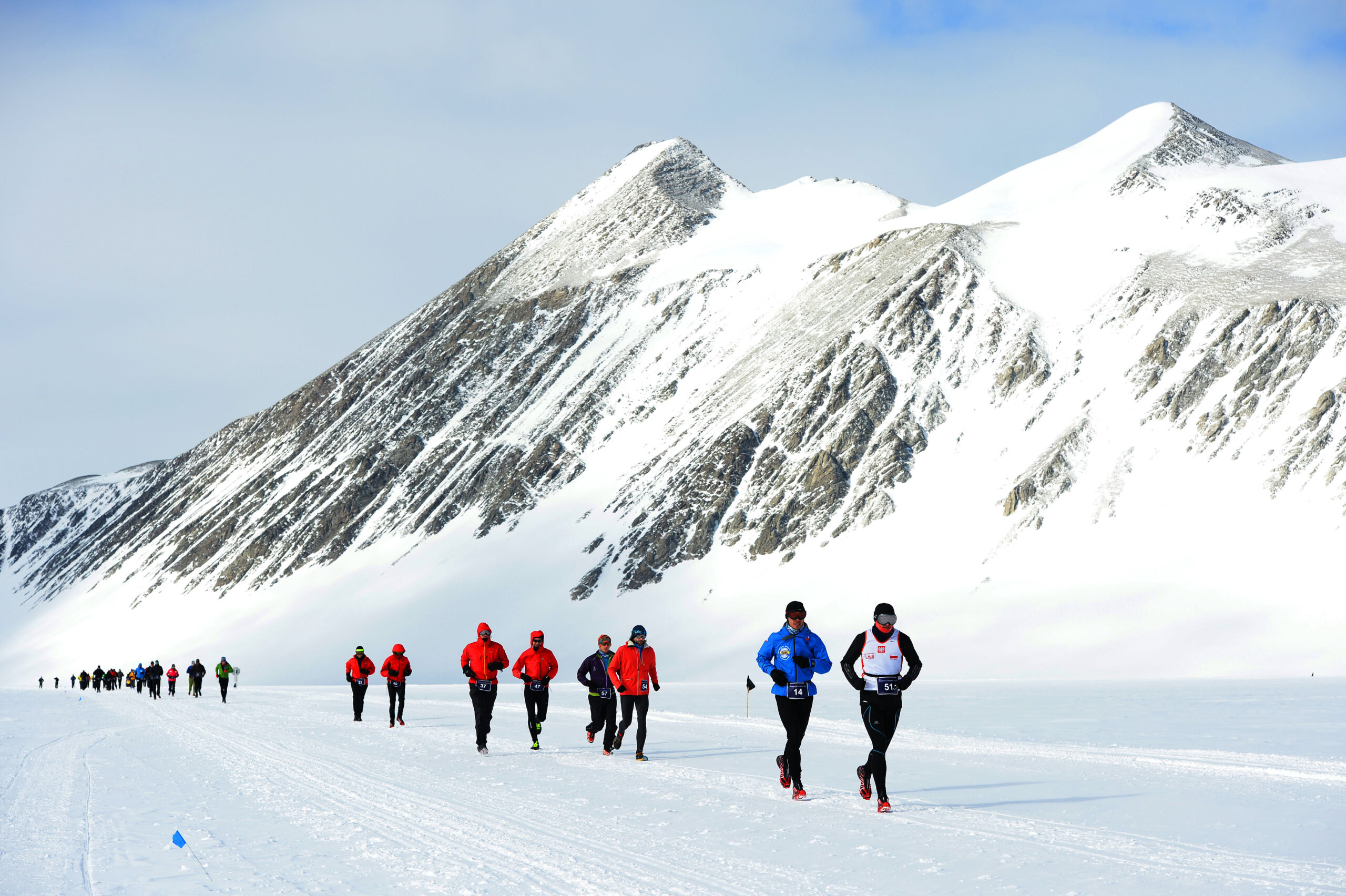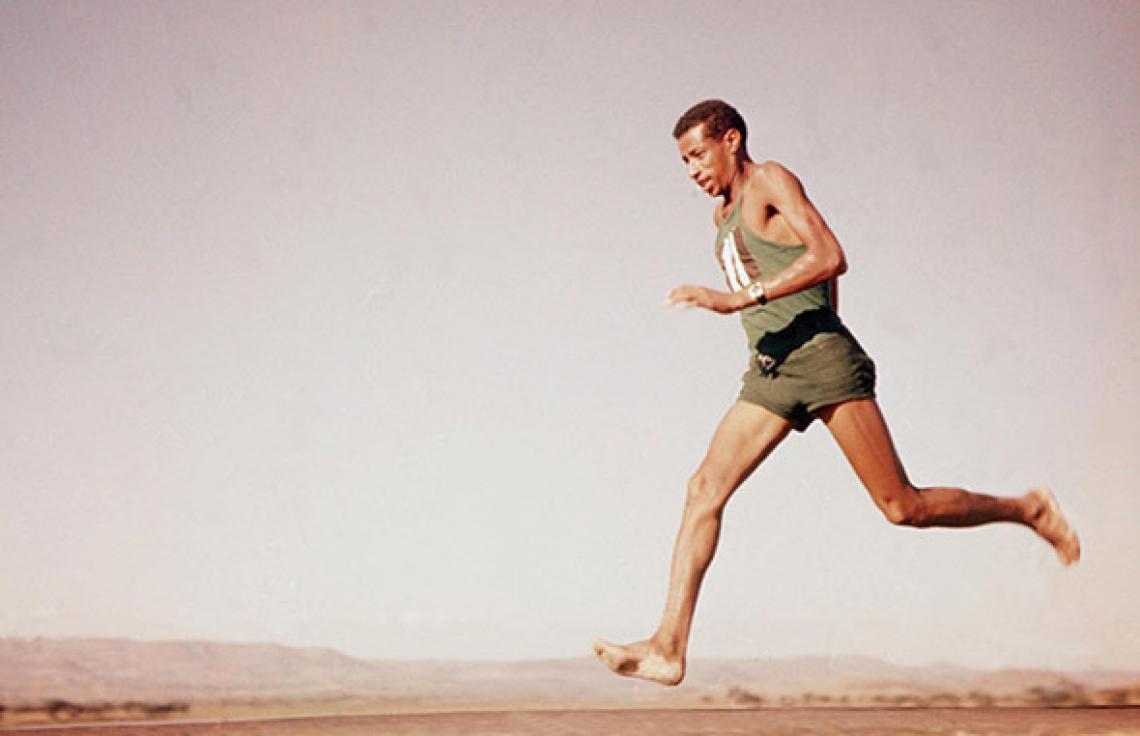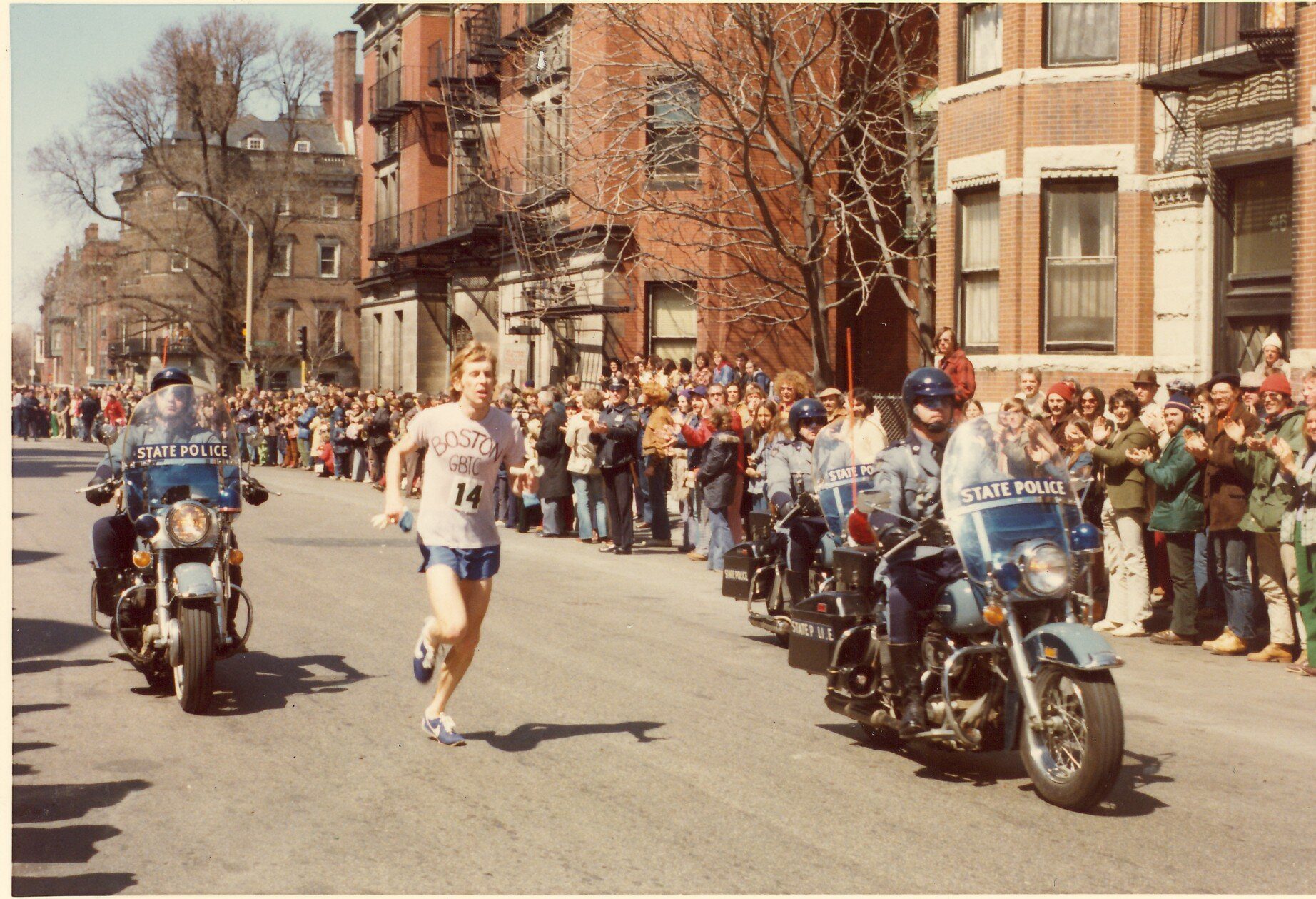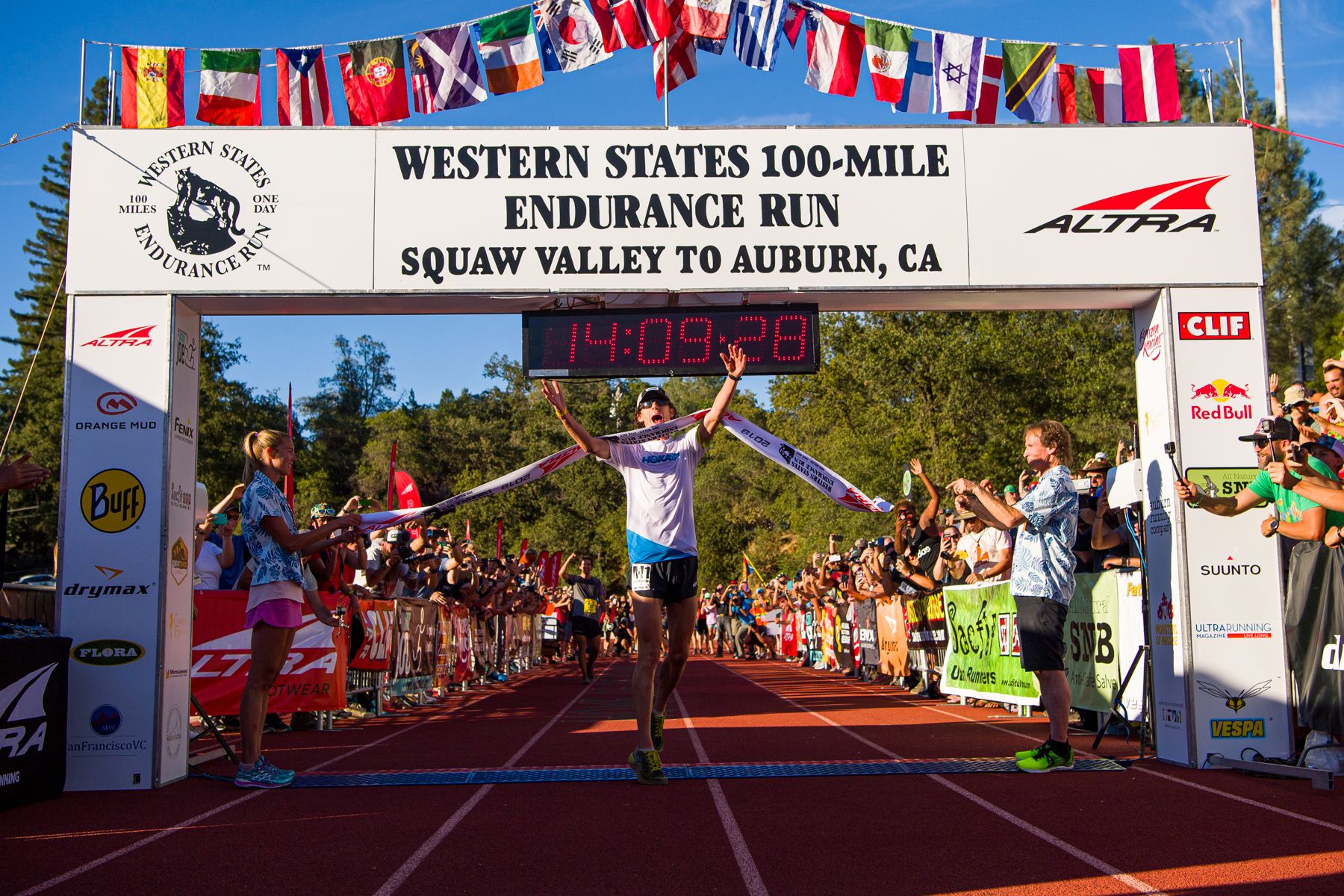Ed Whitlock was an endurance running legend.
Perhaps the most impressive masters-age runner ever to lace up a pair of Asics, Whitlock held 36 world age-class records on both road and track. He set world marks in distances ranging from 1,500 meters [the metric mile] to the marathon. At 73, he completed a 10K in 37:33 — lowering his own world record by half a minute – while finishing tenth in a field of 645 runners. He ran a 5:41 mile at 75. In his late 60s, Whitlock covered ten miles in an hour. Four times he set age-group world records in the marathon. Between ages 70 and 74, the quiet septuagenarian established world records at 5K, 8K, 10K, 15K, 10-mile, half-marathon, 30K and marathon distances.
The older Whitlock got, the faster he ran. He rewrote the record books and forever altered conceptions of human performance in older age. After turning 80, he improved the marathon world record for his age by almost 15 minutes, running 3:25 in April 2011. Six months later, he lowered the mark to 3:15. Whitlock completed more than 40 marathons in his career. In April 2007, the 76-year-old retiree ran a world record 3:04 in the Rotterdam Marathon on a day when the race was stopped after three-and-a-half hours because of extreme heat. He is the oldest to break the three-hour barrier, completing the Toronto Marathon in 2:59.10 at 72. A year later, he lowered that mark to 2:54.49.
Born in a suburb of London March 6, 1931, Ed Whitlock competed in track and cross country. “I tried tennis and badminton,” he recalled decades later, “but I was not very good. I used to muck around, but I didn’t have any hand-eye coordination. Basically, all I can do is run.” In high school, he posted a personal-best 4:31 in the mile. Whitlock competed briefly at London’s Imperial College before graduating the Royal School of Mines with an engineering degree. In 1952, the 21-year-old moved to Canada to work in the mines of northern Ontario. He migrated to a desk job in the extractive industry, settling in the southern Ontario town of Milton, near Toronto. Whitlock stopped running shortly after arriving in Canada and later married and had children.
His marathon career started accidentally. At 44 – three years after taking up running again – Whitlock’s teenage son joined the school track team and became determined to run a marathon. After numerous attempts to dissuade the 14-year-old, Whitlock reluctantly joined his son. The duo finished together, in 3:09.
In 1979, Whitlock posted personal-bests of 1:59.9 for 800 meters and 2:31 for the marathon. After winning the World Masters 1,500 meter title, he lost his incentive to train and again stopped running.
After retiring from the mining business, Whitlock returned to running. “I realized in my late 60s that this silly objective of being the first person over 70 to get under three hours in the marathon was just sitting there waiting for someone. I thought it should have been done long before, but there it was, so I thought I should make an effort at it.” In October 2016, Whitlock contemplated entering his favorite event, the Toronto Waterfront Marathon. Nagging injuries reduced his training time, and he did not make up his mind to run until two weeks before the race. Wearing a pair of 20-year-old shoes, he ran without socks for the first time in his life, seeking to avoid blisters from wet socks. Whitlock started too fast, and was having serious concerns at the halfway point. Having never dropped out of a marathon, he showed a steely resolve. After slowing down to conserve energy, he finished, crossing the finish line in 3:59 to become the oldest athlete ever to complete a marathon in under four hours.
A seemingly ageless wonder known for his modesty and simplicity, Whitlock ran three or four hours a day. He trained in a cemetery one hundred yards from his front door, running five-minute loops around the perimeter. Whitlock had no manager, trainer or coach. He didn’t wear a heart rate monitor, get massages or take ice baths. Whitlock defied convention. His regimen included no stretching, strength work or cross-training. Having no commercial endorsements, the indefatigable Canadian just ran. When he was injured, he simply stopped running until he was able to resume training. In more than four decades of competing, Whitlock followed no special diet, took no supplements, and never charted mileage.
VO2 max measures the maximum amount of oxygen that can be used by muscles during exercise. The higher the number, the greater an athlete’s aerobic fitness. An Olympic cross country skier might have a VO2 max of 90, compared to 20 for an 80-year-old person. At 5’7” and 110 pounds, Ed Whitlock had extraordinary physiology. In 2012, Mr. Whitlock underwent a battery of endurance performance tests at McGill University in Montreal. His VO2 max was 54, the equivalent to a college-age recreational athlete. The 81-year-old distance runner posted the highest reading ever recorded for an octogenarian. “He’s about as close as you can get to minimal aging in a human individual,” said Dr. Michael Joyner, a researcher at the Mayo Clinic who has studied performance and aging. Despite the absence of weight-bearing activities – save for shoveling snow in winter and gardening in summer — Whitlock retained roughly the same muscle mass his entire life.
Having astounded the running world by setting another age-group record at Toronto in 2016, Whitlock felt he could have done better. “If I had the ideal preparation I could have run faster,” said the 85-year-old following the race. It would be his final competition, as Ed Whitlock died of prostate cancer in March 2017, a week after celebrating his 86th birthday.
One year ago today, 85-year-old Ed Whitlock completed the Toronto Waterfront Marathon in 3:59.38 to become the oldest person to run the distance in under four hours. Mr. Whitlock broke the existing record by almost 40 minutes.

